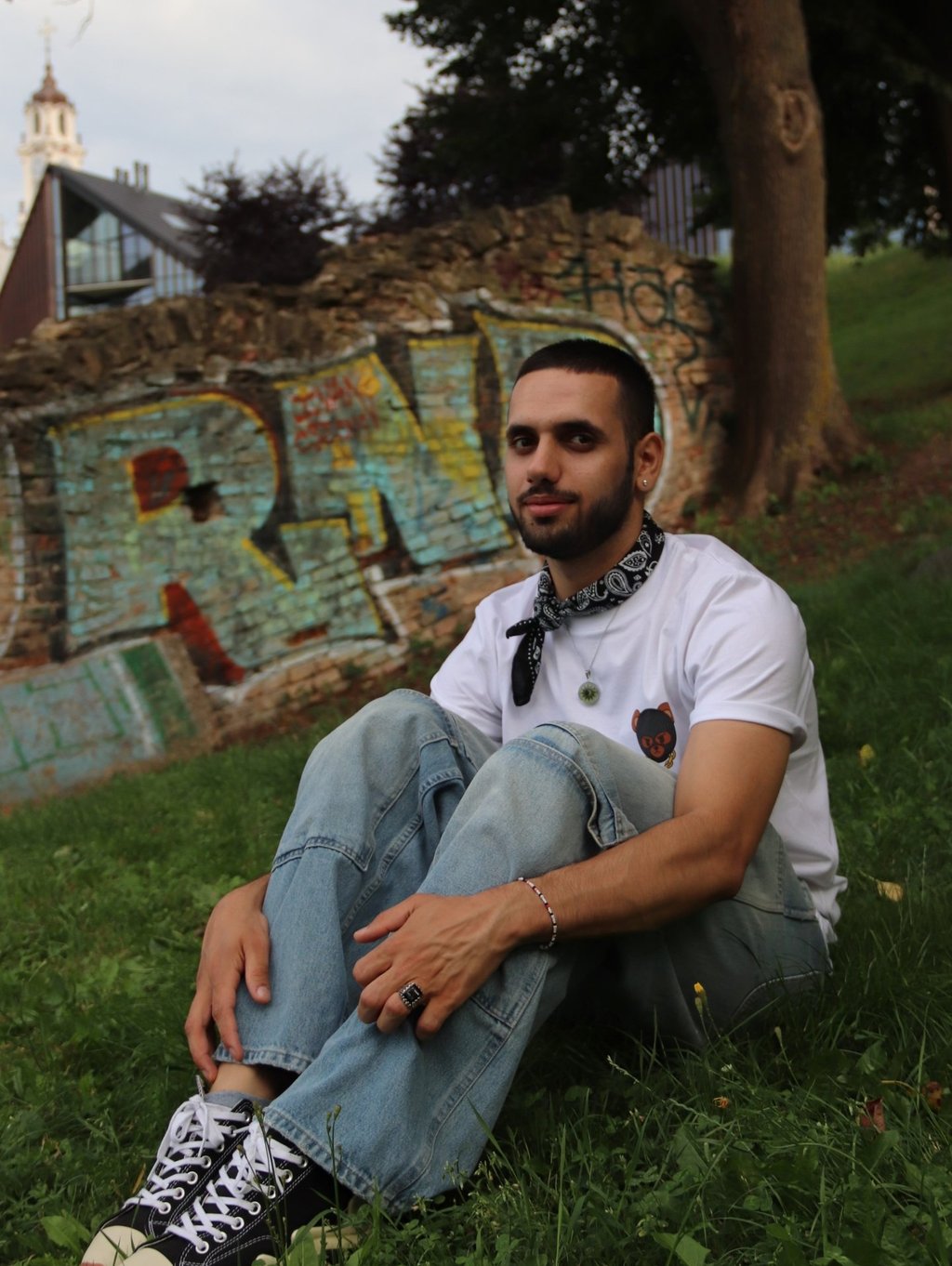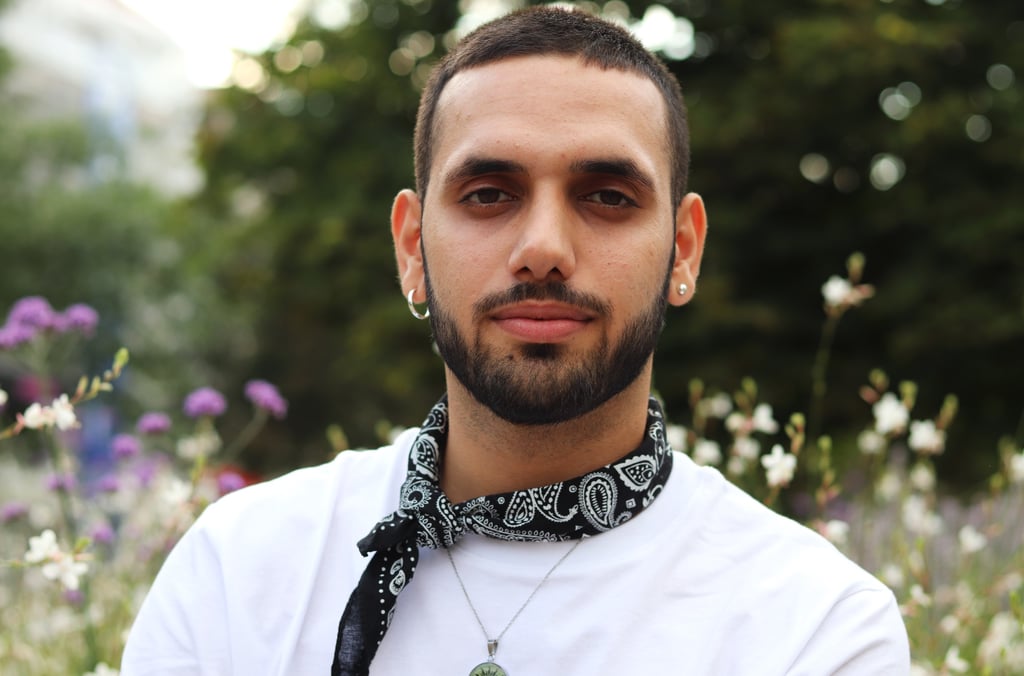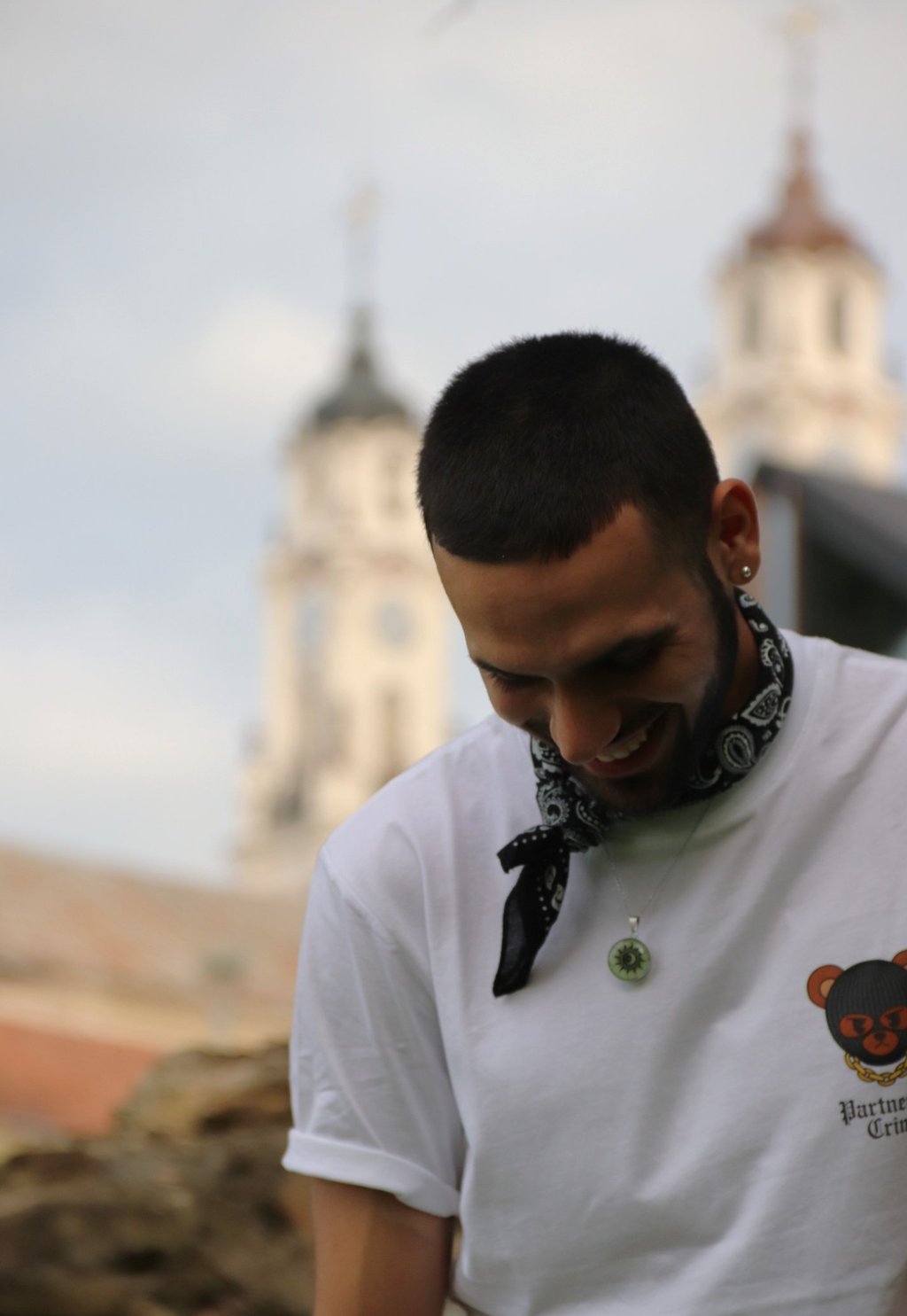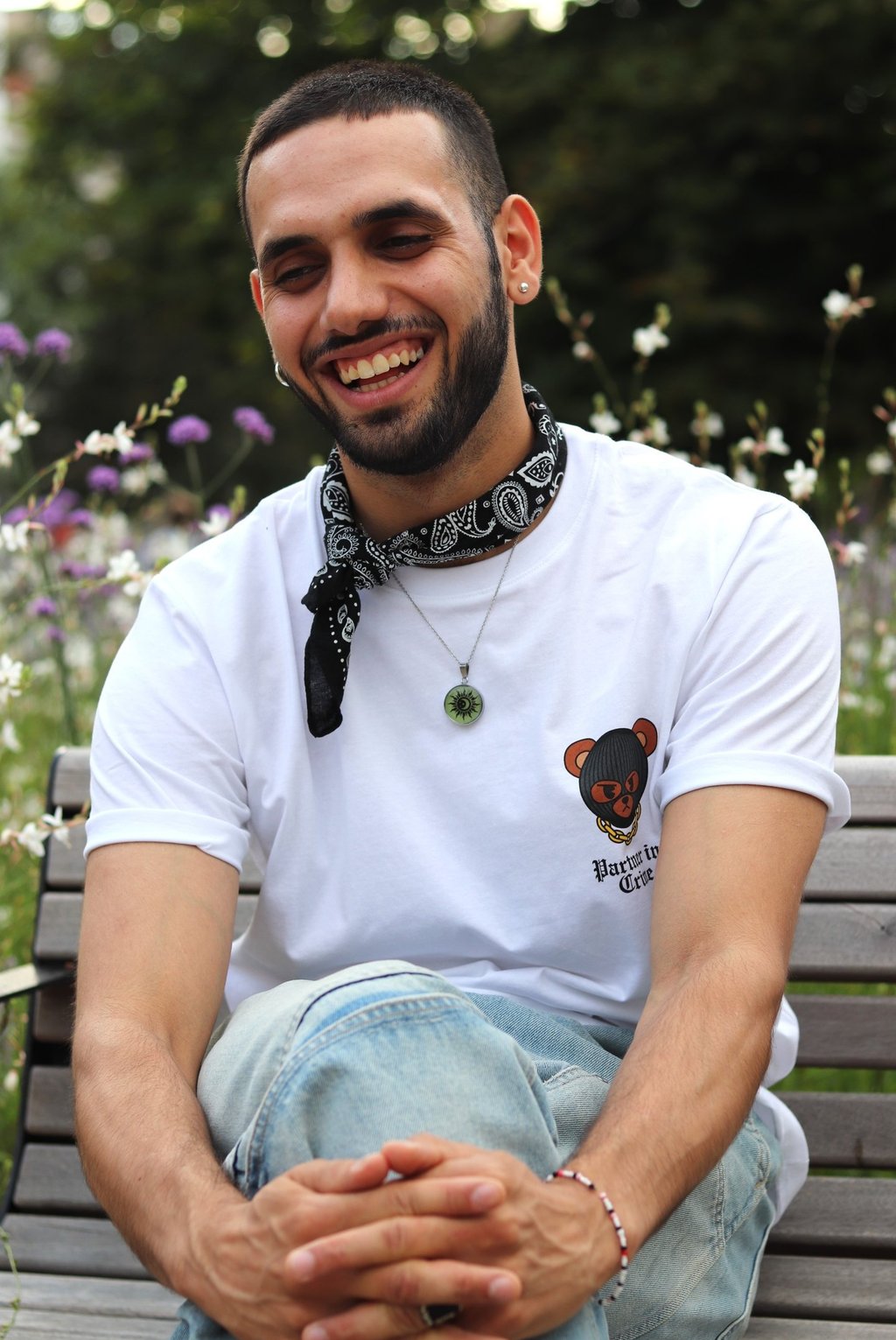Portraits of Members: Ahmed from Vilnius branch
Despite humiliating imprisonment in camps, discrimination at work, homophobia and legal difficulties, Ahmed from Vilnius branch reveals his experiences in Lithuania with a smile and gratitude to the people who supported him
ENGLISH
11/25/20246 min read


Some people say, “Why did you come to this country? It’s poor and boring”. But for me, back in Iraq, I simply had a dream to leave. Because I’m gay and it was hell to live there.
Yes, you get imprisoned for six months here, but you can get an asylum. I came to Lithuania through Belarus in 2021. I was 20 then. When I came, the police brought me to the police office and took a corona test. I tested positive, so they quarantined me for 15 days. After that, I was moved to the first camp. I don’t remember the name of the place.
The first two months they take all the phones from you. I was lucky, because I had two phones, and I gave them the broken one and hid the good one. I was the only person in the camp of three hundred people who had a phone. At night, under the blankets, I sent some news to my family because if they hear no news for two months, you know how they would feel. So everyday I used the phone for just five minutes.
Soon other people in the camp found out and wanted to give me money to use it. I said you can use it but don’t tell the police. The people were so happy to contact their family. I was happy for them too.
Then I was moved to Rūdninkai. It was a tent with a thousand people there. It was cold and rainy and you get food only one time per day. There was a market, like a car market, but it was super expensive. The food was bad, we couldn’t buy any medications if we were sick. When I came to Vilnius, I couldn’t believe how cheap everything was compared to the prices in that camp.
And then I was moved from Rūdninkai to Kybartai. When they found out I’m gay they said “Oh, you don’t have to stay here, you have to move to Medininkai”. But in Medininkai, it was still not safe for me. There was a special sector, but a lot of people there were not homosexual. They were saying they were, but they were actually homophobic.
Then I was moved again, this time to Pabradė, to Sector B. They called it “Sector Gay”. Everyday at 4 or 5 a.m., the police would come to count if nobody ran away. But how they came… They pushed the door with their feet, and shouted the numbers. And they made fun of us, and looked at us like we were monsters, because everybody knew we were gay.
Finally, I got a private lawyer who helped me get an asylum. I had to go one more time, to Rukla, and wait for my personal number for four months. I don’t know why it’s so long. Usually they make you an ID and a bank account, you choose the city, and then you can leave.
Out of the thousands of migrants in the camp, a lot of them were returned back to Iraq or fled to Germany. Only around 20 remained in Lithuania. Do you think this is because “Lithuania is a poor country” or because of the government? I think it’s because of the government. They didn’t care about us.
After they clear our documents, they should believe our stories that we are in danger, so at least there should be consideration of human rights. But there are no human rights for us. Maybe if I had white skin and blue eyes it would be different? Because I know some Ukrainians and when I ask them how much they pay for their rent, they say the government pays for them. So, why?..
The situation is bad not only in Lithuania, it’s in Europe. I have a friend who works in Iraq in a similar NGO like G1PS, helping LGBT people, but he’s more in danger, because it’s illegal in Iraq. One time he got an invitation from his friend in the Netherlands to visit, but the embassy did not let him in, they said “You’re Iraqi, maybe you come here not to visit but to get an asylum”.






When I got out, I looked for a job. My first job here was in Yala Yala Bistro. It was the first job in my life, actually. There were other Iraqi refugees who worked there. After working there for nine days, I fell off a scooter on my way home from work. And then the employer said not to tell the doctor that I’m working. But I still said to the doctor the truth, and so the doctor asked for the contract and I said I don’t have it.
The employer tried to scare me that he will tell the institutions that I work illegally and I will go to jail. I didn’t know then that the employer is responsible for this and employees are not punished. I looked for help and G1PS represented me in the labour dispute committee. G1PS proved that there was a work relationship and the employer had to pay me compensation. But he was also in debt to other employees, who were also refugees from Iraq. So he declared bankruptcy and we never got the money.
Interesting that the same person now has a new business. So maybe he had the money?..
I changed a few jobs and there were problems everywhere. I worked in Bolt a bit, but it is very dangerous for health. And in hospitals, nobody speaks English.
I wanted to learn Lithuanian, but there are no good places. Some courses are very expensive, like 600 euros. And there are cheaper places, but they scream at you there. I joined one group after I got out of camps, but they were already in the middle. They said “It’s your problem you came late”. I say, “It’s not my problem, I was in Rukla!”.
In the job I have now, where I work as a cashier and a chef in a kebab store, it was very hard with the manager. I work 14 hours a day, 4 days work, 4 days off. One time I got sick and the doctor said I can’t work for two weeks. The manager wanted to fire me, she said “I need people who work, not people who are sick”. And I said, “I want to work, but I physically can’t right now”.
After I came back from sick leave, she gave me 14 hours of work for 6 days in a row. She wanted to make my job difficult to make me quit. I switched the 6th day with another person, so she couldn’t do anything about that. I’m happy there was G1PS to help me in that.
I keep in contact with gay friends in Iraq. There, it’s like you have to be in two lives. One life is with himself on his phone, sometimes posting stories or connecting with me, and another life is with his family, his country, and the government. You cannot wear what you want, you cannot be what you want.
But it’s for the public. In private, until you’re an adult, it’s normal that boys have fun with boys, it’s like 99% of Iraqi men are bisexual. But then they will deny everything and become extremely homophobic in public. And if someone becomes openly gay, people who support them become enemies.
You can get up to 15 years in prison for open gay relationships in Iraq. Before that, they wanted to return the death sentence, but now it’s just 15 years of prison. Wow, thank you very much. The Iraqi government doesn't even think about lesbian relationships. Girl with girl – what can they do? No, it’s not possible. They only care about male relationships.
It’s hard for me to talk about my past. And I don’t know what my future will be. Now I want to become a flight attendant, but it’s quite difficult for me to reach that. I was in my last year at school when I had the chance to leave, so I didn’t finish it. In Lithuania, if I want to go to university I need to bring documents from my school, but they don’t give the documents to anyone. I need to go there personally.
That’s why I don’t study right now. I try to connect with other Iraqi schools outside Iraq in Romania or in France, but now I’m too old for school, they say I need to be 20. And when I ask what I should do, they say “Go back to Iraq”...
I hope I’ll get the diploma some way and start studying.

